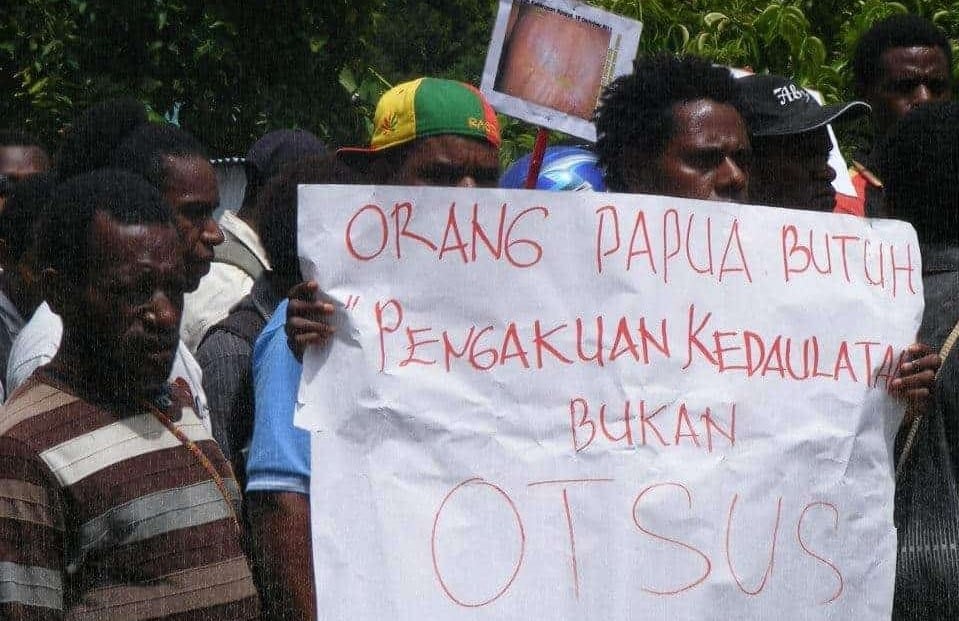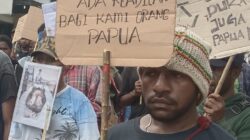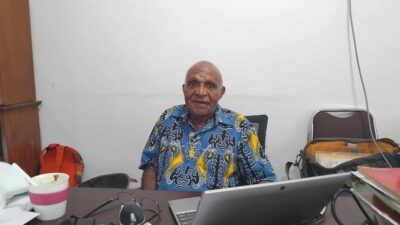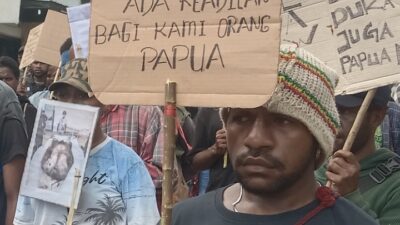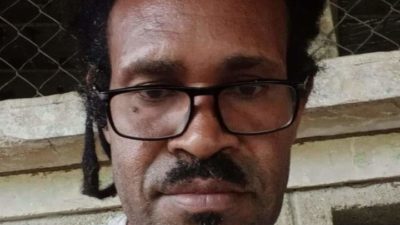Jayapura, Jubi – Amnesty International Indonesia Executive Director Usman Hamid said the determination of the Papua Expansion Bill as an Initiative Bill by the House of Representatives on Tuesday, April 12, 2022, showed a decline in democracy in Indonesia.
He regretted that the bill was drafted without involving the Papuan people. According to Usman, Article 76 of Law No. 21/2001 on Papua Special Autonomy (Otsus) said that the division of the province could only be carried out with approval from the Papuan People’s Assembly (MRP) as the cultural representation of the Papuan Indigenous People. However, the government and the House unilaterally changed the rules by enacting Law No. 2/2021 on the Second Amendment to Otsus Law. The new Otsus Law grants the government and the House the authority to expand Papua Province without having to get MRP approval first.
“Indeed there is the new Papua Special Autonomy Law, which does not require MRP approval in the division of provinces. However, the amendment to the Otsus Law was not based on Article 77 of the previous Otsus Law, namely through the proposal of the Papuan people,” said Usman on Thursday.
The new Otsus Law itself is currently being challenged by the MRP at the Constitutional Court as it was drafted without the involvement of the MRP. Despite that, the House made three bills for the expansion of Papua based on the new Otsus Law.
Usman suspected a trend of re-centralization to retract regional autonomy. He said that the tendency to reduce regional autonomy and increase the authority of the central government, or re-centralization, was also seen in Law No. 11/2020 on Job Creation.
To prevent the re-centralization from continuing, Usman said, the deliberation of the three Papua Expansion Bills should be stopped or postponed. Moreover, the Papua expansion plan has received a widespread rejection from the Papuan people who have protested in various regions.
“The government should at least respect the MRP as the cultural representation of the Papuan Indigenous People, whose authority is to ensure the protection of the Indigenous Papuans,” he said.
Usman also reminded the government and the House that the new Papua Special Autonomy Law was currently under a judicial review at the Constitutional Court upon the MRP’s request. According to him, the House should postpone the deliberation of the Papua Expansion Bill until the Constitutional Court makes a decision regarding the new Otsus Law.
“If the government and the House continue the deliberation, it will only make the public even more suspicious. Is the Papua expansion really for Indigenous Papuans? Is it for the welfare of the community, or is it just for business interests? Moreover, the Papua expansion plan is contrary to the government’s moratorium policy on regional expansion,” said Usman.
Chairman of the MRP Timotius Murib said that of the 29 regencies and cities in Papua, eight regions had already protested against the expansion plan initiated by the central government.
“The central government has clearly violated the constitutional rights of the Papuan people. Therefore, the MRP firmly rejects the expansion of Papua,” said Murib. (*)


